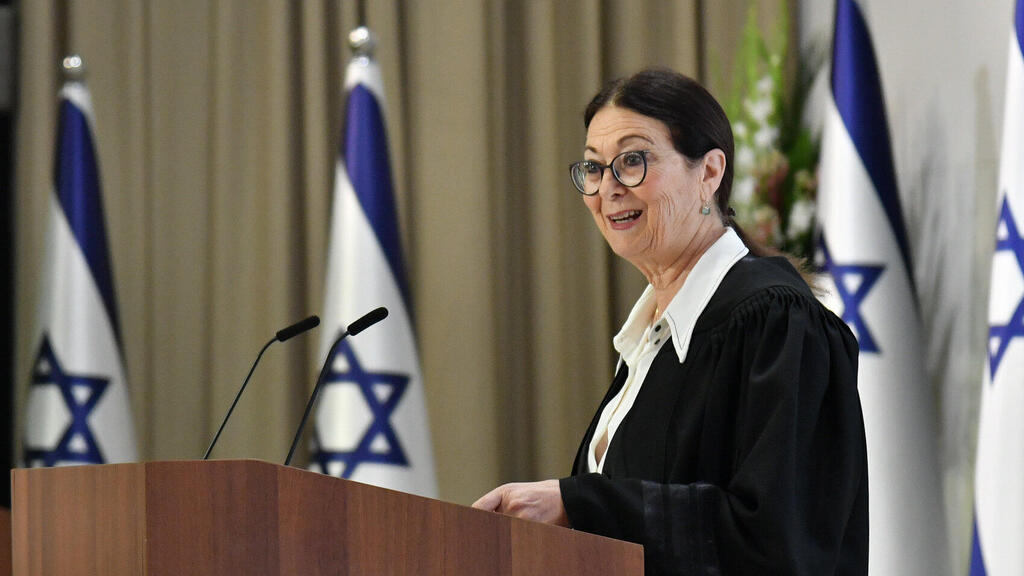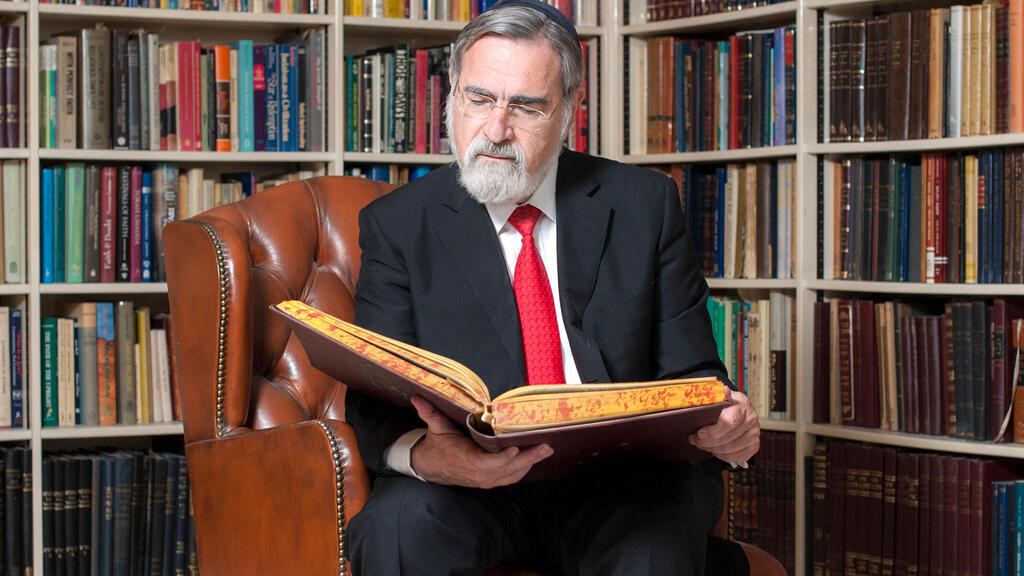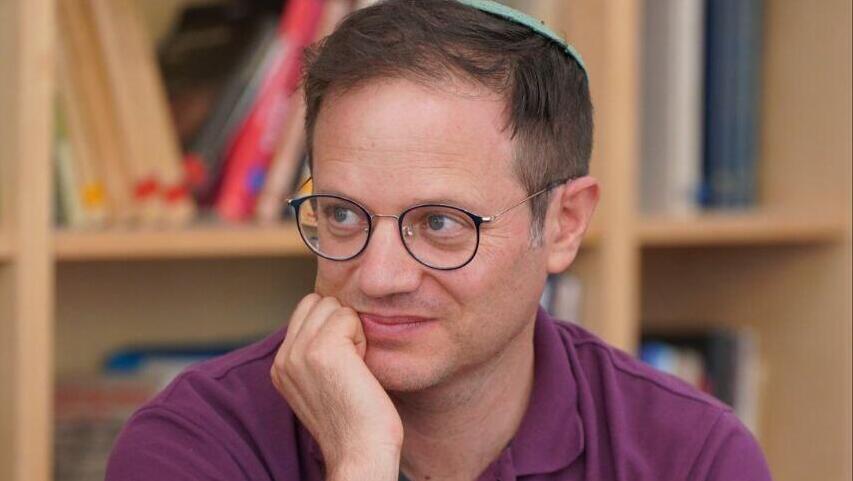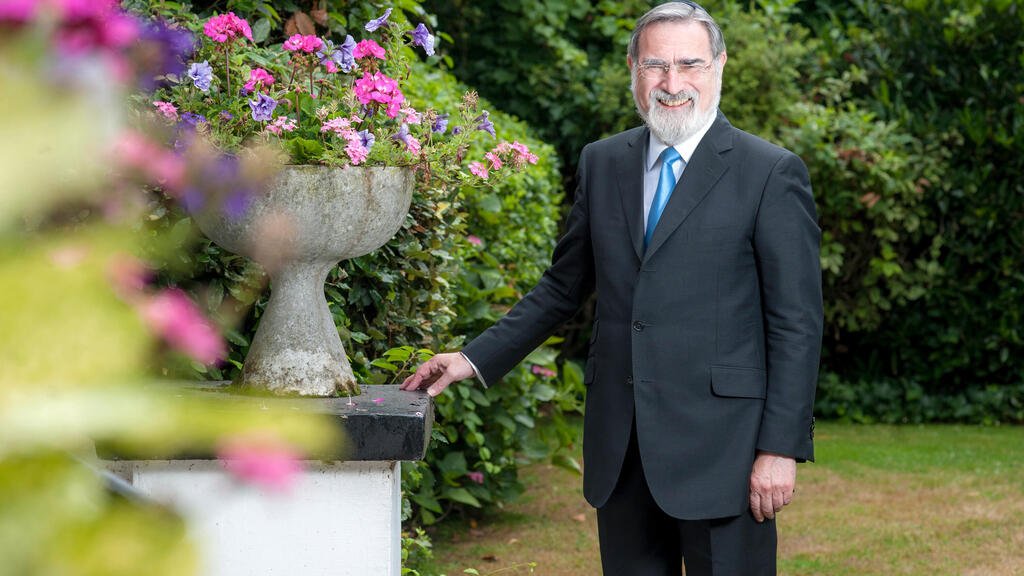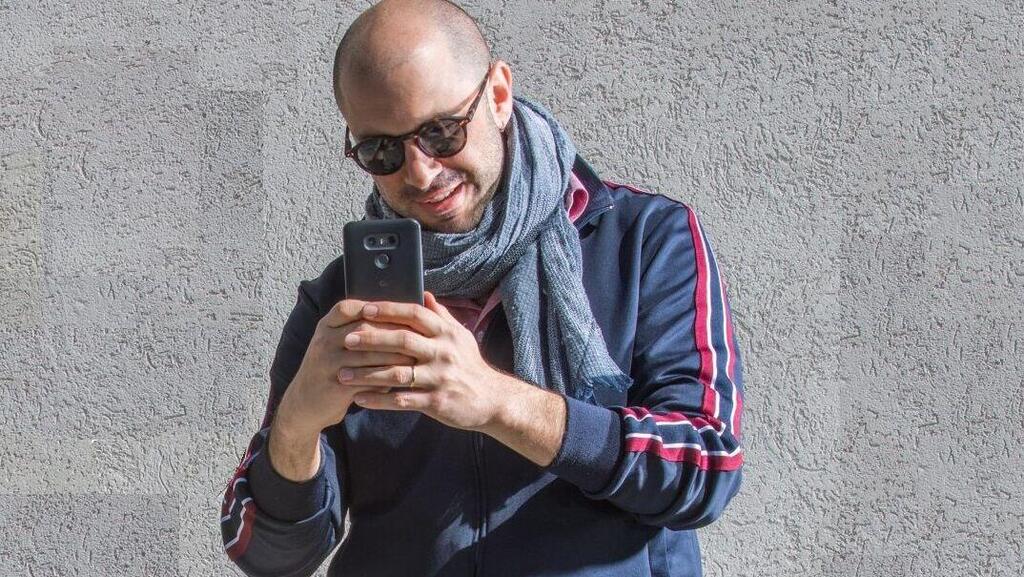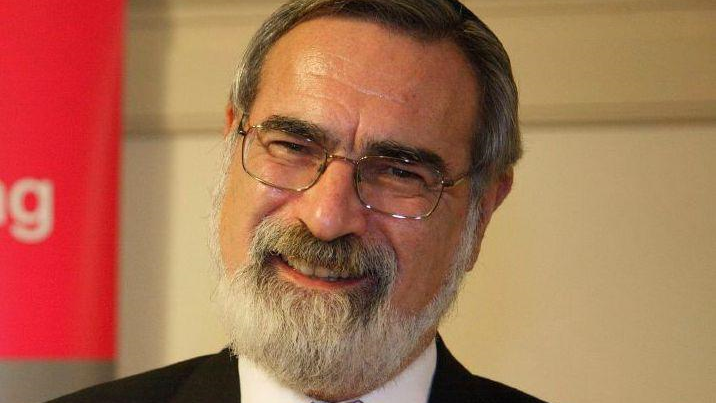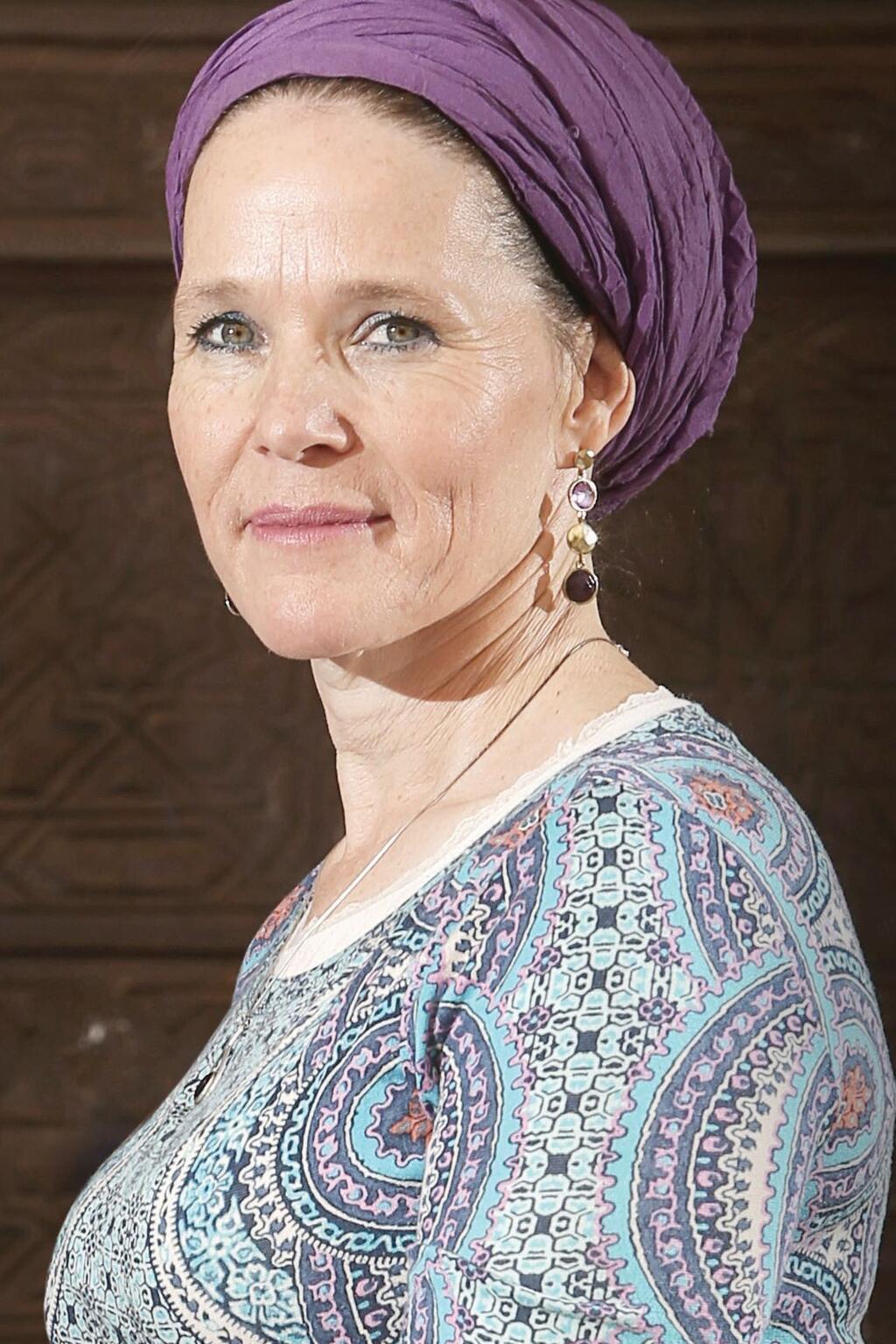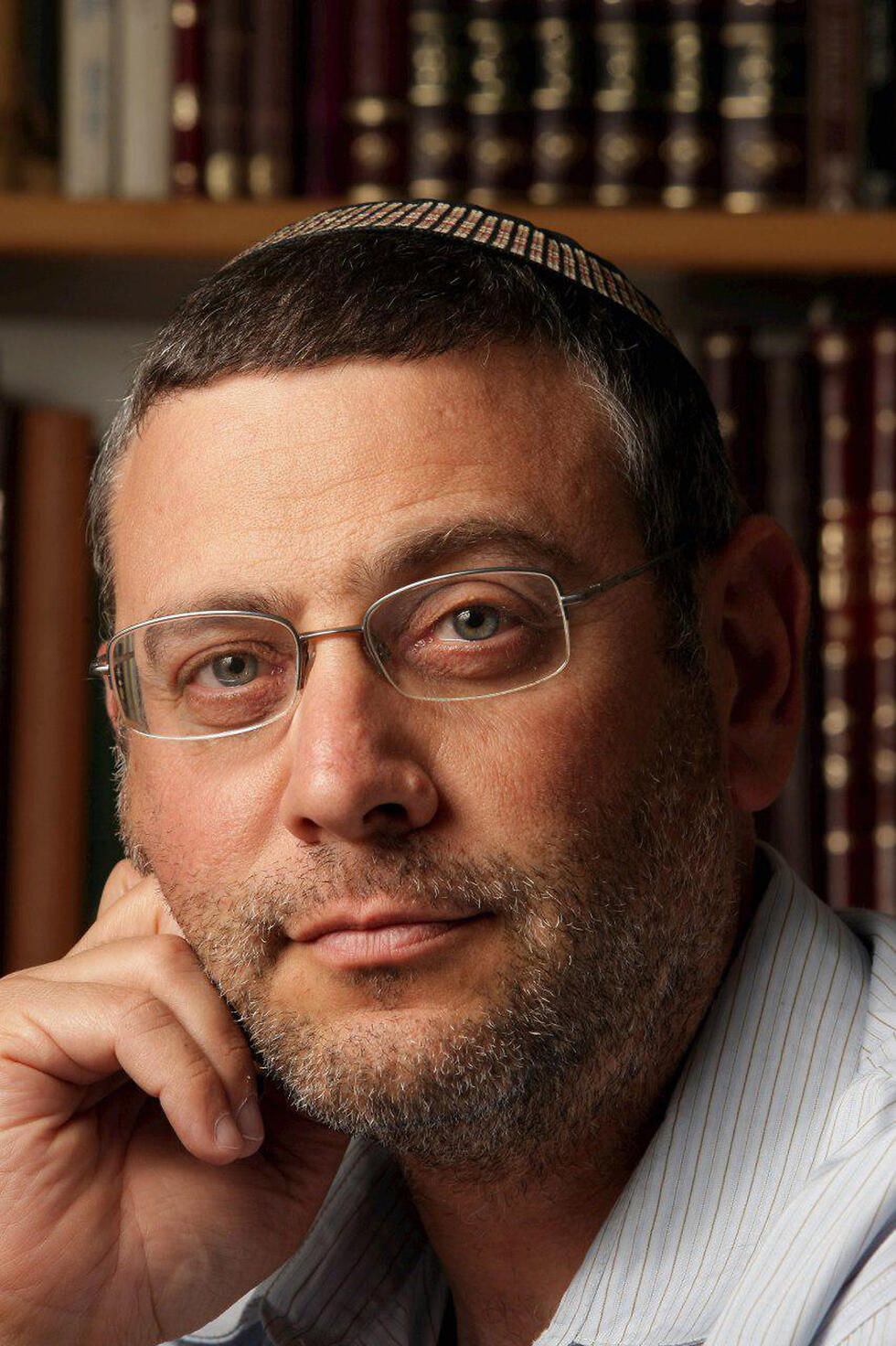Getting your Trinity Audio player ready...
This Tuesday, September 13, a special evening at the official presidential residence in Jerusalem the second anniversary of the passing of the former Chief Rabbi of Great Britain Rabbi Jonathan Sacks, will be marked.
The event is expected to be attended by guests from Israel and abroad, members of the Sacks family and public figures, such as Director of the Sacks-Herenstein Center for Values and Leadership at Yeshiva University Dr. Erica Brown, who will interview President Isaac Herzog, to talk about issues connected to the world of values of contemporary leaders.
Live stream of event at official presidential residence in Jerusalem the second anniversary of the passing of the former Chief Rabbi of Great Britain Rabbi Jonathan Sacks
The event will be broadcast live in Israel and worldwide, including on Ynetnews. In honor of the event, we asked Chief Justice of Supreme Court Esther Hayut, poet Tsur Ehrlich, author and director Yair Agmon, Rabbi Benny Lau, Miriam Peretz, Racheli Fraenkel and Rabbi Sacks’ brother, Alan, to share with us what the great religious leader meant to them and how his personality and thought have changed their lives.
11 View gallery
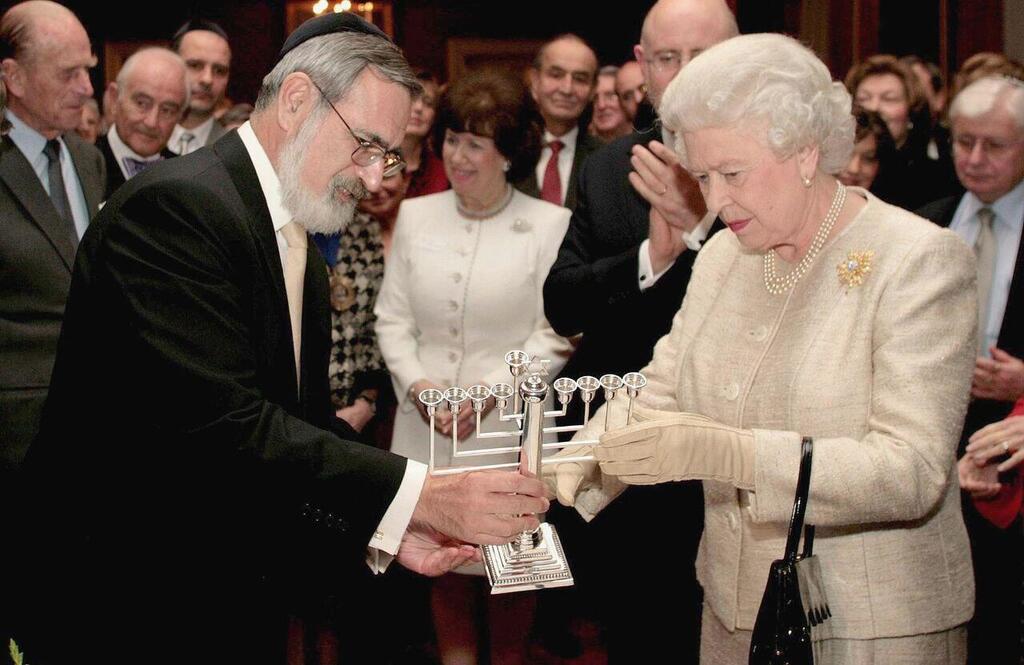

Rabbi Jonathan Sacks met the late Queen Elizabeth on many occasions. It was she who honored him with his peerage
(Photo: AP)
Chief Justice of Supreme Court Esther Hayut:
“I came to know the late Rabbi Jonathan Sacks’ fascinating writings in recent years, and there is one inspirational sentence I found in one of his first books – The Dignity of Difference – which, in my opinion, captures his ideological weltanschauung: 'What morality restores to an increasingly uncertain world is the idea of responsibility – that what we do, severally and collectively, makes a difference, and that the future lies in our hands.'
"Rabbi Sacks’ words here encourage action, moral conduct, responsible behavior, and mainly offer hope.
"In Rabbi Sacks’ writings, I discovered a treasure trove of thought and philosophy that invites profound conversation, while integrating the contemporary world into the world of Jewish Law. In his books, Rabbi Sacks gives us expansive tools and original insights for analyzing the Biblical text. He creates a bridge of respect between different worlds, and enables anyone who so desires to walk across it."
Tsur Ehrlich, poet, translator and editor:
"For me, Rabbi Sacks was a teacher for life. In my ongoing role as the Hebrew translator of his writings, his words accompany me week in week out. Not through regular passive reading but in the active deed of writing his words anew. Pouring them from the language most suited to them, from the glint of the clear and rich English style in which they written, to the language they were destined for, the language of the ancients from which they were cast. I have translated approximately 1.25 million of Rabbi Sacks’ words into Hebrew (in Hebrew it comes out a little less).
"His wondrous phrasing ability, orally and in writing, means that to a large extent the act of translation occurs by itself. The sentences are poured like oil into the jug of the other language. There is certainly an element of poetry in the flow and tone and harmony in Rabbi Sacks’ sentences.
"However, this occupation with words is a basis and a framework for internalizing them. It turns out that words of Torah can transform hearts. They have in their power – with an original and profound reading like Rabbi Sacks’ – to propose to the individual, and the nation, and to nations, contexts of fruitful thought and exciting moral horizons. Philosophy could be existential, in the practical sense of the word. Biblical discoveries, inspiring hope.
"And so, through my unique role, I was simply one of his student readership – even if it is reading of a special kind, active as I have described. One does not have to adopt Rabbi Sacks’ position on every topic in order to be his student; to be influenced by him on a fundamental level and to be revivified by his ideas. In his thought, and the way in which he clarifies and transmits it, Rabbi Sacks succeeded in building a complete and coherent view of the world, able to address the needs of the contemporary soul. He so accurately accessed them by dint of his great sensitivity to the spiritual vibrations of the time, and from his alert interest – enhanced with intense reading and listening – in every possible discipline. And from the wisdom of the heart, which is another level over and above the wisdom of the intellect.
"A harmonious choir sang from Rabbi Sacks’ mouth: a choir of multiple voices of all realms of life; of all the painful, chafing places that are possible to heal. It was a choir of the young voices of ancient Judaism. It was a choir of the voices of religious faith in a secularized world, from which morality and raison d’etre are seeping away. It was his call to the world, and his call to me: the convincing voice, better than any other, of why to be a Jew, why to be Israeli, why to be me, why to be."
Miriam Peretz:
"I never met Rabbi Jonathan Sacks. But seven years ago, about four years after my son Eliraz was killed on active duty, we sat around the Seder table with the grandchildren and read the Haggadah. They, whose father had been killed in Gaza, spoke very harshly about the Egyptians. It was hard for me too.
"It was important to me not to educate them to hate.
"When we started to speak about the Egyptians, one of my grandchildren said, 'Look, even God told us to take gold and silver from them.' And then I said to Elyasaf (my son), 'What type of people are we? It cannot be that we left Egypt just to take all the Egyptians’ property with us? That’s what our people’s freedom means? To take from the Egyptians?'
"Elyasaf, who had already been exposed to Rabbi Sacks’ thought, suggested we read his commentary on the Exodus from his book, Ceremony and Celebration: Introduction to the Holidays.
"Rabbi Sacks teaches us that taking gold and silver from the Egyptians was designed to reduce hatred. When a slave is released, his master gives him a little gift. What does a gift do? It reduces the slave’s level of hatred towards his master.
"Immediately after Pesach, I took out a notebook and called it “Words from Rabbi Sacks” – a notebook of insights in which I wrote this story and the conclusion that in order to be free, a person must release him or herself from hate. The beauty of Judaism is that it doesn’t deny the humanity of its enemies. And I found myself on Seder night, telling my grandchildren, “Look what the Almighty was thinking about when we left Egypt. That they shouldn’t hate every Egyptian, every Arab. It wasn’t all of them who killed your father.
11 View gallery
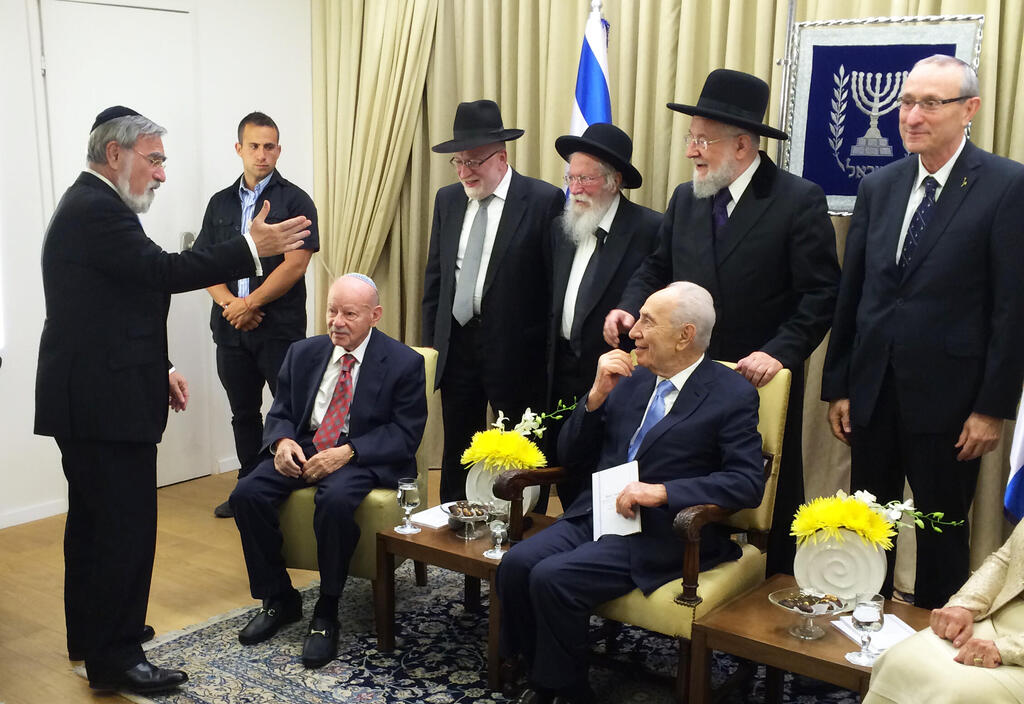

Rabbi Jonathan Sacks with former President Shimon Peres
(Photo: The Rabbi Sacks Legacy)
"Since then, I have read his books every Shabbat. It’s a must as far as I’m concerned. A man of such spiritual greatness lived amongst us and here in Israel we didn’t have the merit of knowing him enough. He possesses a wealth of unique thought, knowledge of different religions, understanding of economics and philosophy. He brings the social approach of the Prophets – how to relate to people: the stranger, the convert, the pauper, the other, and the twin threads of love and compassion are intertwined throughout his writings.
"Through him, I connected to the story of our responsibility, the responsibility of the Jewish people in general and of one human being to another. Rabbi Sacks combines the word ‘responsibility’ with the idea of Tikkun Olam (the repair of the world), so that together we can build a better world."
Yair Agmon, author and director:
"In the month of Elul, about 200 years ago, I began my studies in a small, wonderful yeshiva on Mount Gilboa. The yeshiva’s schedule was relatively straightforward. Study Talmud all day! Unfortunately, I never liked Talmud, and I never managed to feel at home with all the various topics, the polemics, the never-ending debates. After a few weeks of suffering, I decided to leave. I spoke to Rabbi Zevik, one of the staff there, and told him I was out. But he asked me, 'Yair, is there something you do like to learn?' And I said, 'Yes! I love learning Torah. The weekly portion for example.' And Zevik said, 'So learn Torah! Don’t go into classes, don’t learn Talmud. Just learn what you like to learn.' That’s what he said so I took his advice and began to study the Five Books of Moses, from dawn to dusk.
"And thus, in a flash, my entire yeshiva experience was completely transformed! Instead of suffering, I began to enjoy it. I was studying Torah all day! I was reading the verses and trying to understand them. I would study the commentators, summarize academic articles and listen to recorded classes. So it was only natural that within a few months, I came across the texts and ideas of Rabbi Sacks. And when I started to read him, I sensed I had found what my soul really yearned for.
"I want to explain what struck me in Rabbi Sacks’ method of interpretation. Half the books I’d read on the Torah were books by people who ‘used’ the Torah to justify themselves. Miraculously, everything written in the Torah fitted perfectly into their cultural belief system! The other half were books by people who tried to explain the Torah through the eyes of someone else –our Sages, Leibowitz, or Cassuto.
"But when I read Rabbi Sacks, I finally felt that here was someone who was simply trying to listen to the Torah. Listen to what it was saying. Without deciding in advance what kind of Torah it is. Without deciding in advance who these verses can justify. My feeling was that here was a man who approached this text with sensitivity, with an open mind, with an interminable power of listening.
"When I read Rabbi Sacks I knew. This is how one should learn Torah.
"I’ll give you one fine example. In the book of Exodus, the Torah ‘wastes’ pages upon pages on the intensely detailed descriptions of the planning and construction of the Sanctuary. I never understood why. Who cares? Why do we need to read all those details? The answer Rabbi Sacks gives made a lot of sense to me.
“The Torah is not man’s book of God. It is God’s book of man. It spends a mere 34 verses describing His own creation of the universe, but more than 500 verses describing the Israelites’ creation of a tiny, temporary, portable building called the Mishkan, the Sanctuary. God never stops believing in us, loving us, and hoping for the best from us.
"It’s clear to the Torah that God can create a home for human beings. The question that bothers it though is how can human beings create a home for God?
"Wow! Isn’t that beautiful? That’s how one should learn Torah! Kudos!"
Racheli Fraenkel, Torah educator:
"How does one write about stature, personal greatness, greatness in Torah, leadership and extraordinary inspiration?
"It feels very natural for me to answer the invitation to share something personal and what Rabbi Sacks was for me. Because with all his greatness, and the breadth of his teaching, writings and the lofty positions he occupied as the representative of British Jewry – and later as a guide and unique Jewish voice across the globe – my encounters with Rabbi Sacks were and are very personal.
"Whether the encounter takes place in a book, online or in real life, his warmth and deep love of humanity touch one’s soul and create a sense of closeness and familiarity. After a few years of reading and following him from afar, I finally met Rabbi Sacks at the Unity Day events that arose from the deep comradeship felt during the days of searching for our three sons, the kidnapped boys.
"At one of the ceremonies, I heard Rabbi Sacks phrase a sentence so simple and succinct: 'We don’t need to agree with each other, but we do need to care about each other.' What simplicity! And why do we need so much courage to apply this call to each other, and to ourselves? We can even become accustomed to expecting it: we won’t agree, but we should care.
"And so Rabbi Sacks continues to live within me; clarifying ideas, formulating insights, arousing hope.
"Rabbi Sacks reminds us of the difference between joy and happiness: “Happiness is something you can feel alone, but joy, in the Bible, is something you share with others… Happiness is about a lifetime but joy lives in the moment. Happiness tends to be a cool emotion, but joy makes you want to dance and sing. It’s hard to feel happy in the midst of uncertainty. But you can still feel joy.
"You can choose to feel joy. Rabbi Sacks makes a distinction between optimism of the Israeli kind of “It’ll be okay” and genuine hope, the faith that together we can make things okay. The former does not demand anything from us, apart from the trait of naivete. Hope demands courage, action, cooperation, risk. It makes us vulnerable, because we are truly invested in it. And Rabbi Sacks taught us not to become confused, not to settle for empty clichés. Because to be a Jew is to always be an agent of hope."
Alan Sacks:
"We were very close. I’m the youngest brother of the four of us and Jonathan was the eldest. I could have deep emotional conversations with him and talk about anything under the sun. They weren’t conversations between Rabbi and student but between brothers, from which I was fortunate to receive inestimable inspiration and enrichment. There was always added value to every chat with him. There was no such thing as a futile conversation. Whether it was psychology, sociology, science, music, politics… he never gave you a superficial answer.
"He was an exemplary brother who always looked out for the rest of the family. Even if I was late for synagogue, he would get up from his seat and come to greet me, make sure I had a seat and that everything was okay.
"He wanted to learn from every person. His thirst to learn something new every day, combined with his phenomenal memory, was simply rare indeed.
11 View gallery
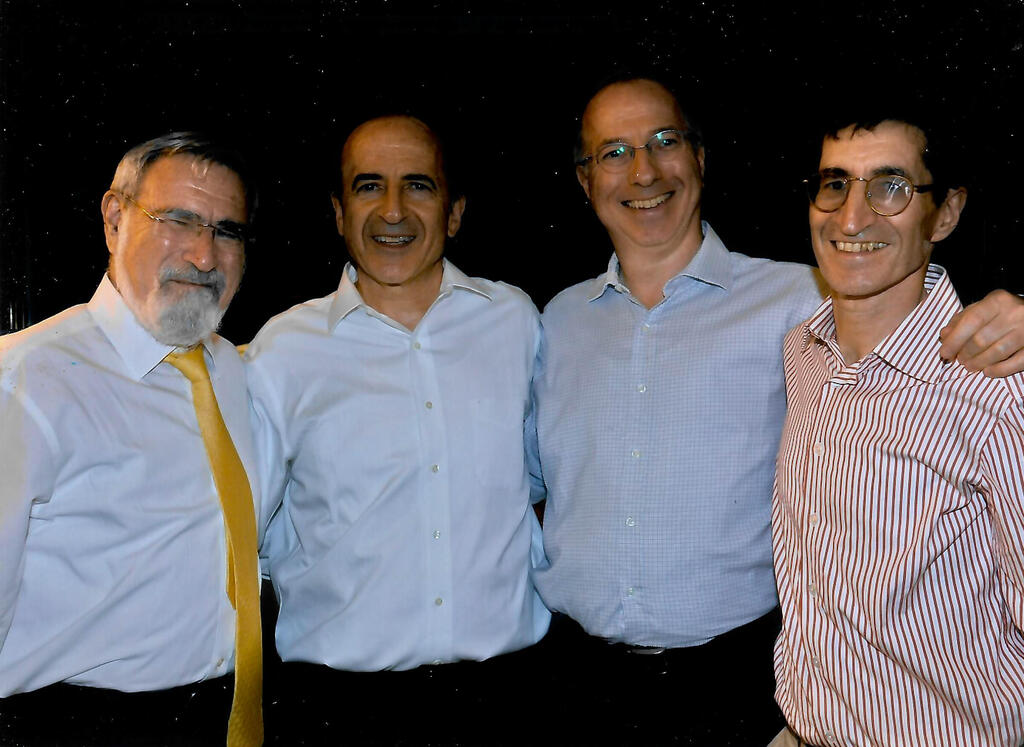

Rabbi Jonathan Sacks with his three brothers – Alan, Elliot and Brian
(Photo: Courtesy of the family)
"There is no point in commemorating him. There is a task of integrating his messages and his philosophy – and chiefly his values – into the Israeli education system. Study was at the top of his list of priorities. It is no coincidence that his opinions are so appreciated by so many sectors of the population, left and right alike. He was above arguments.
"And we have the responsibility to ensure that Jews, in and outside of Israel, are proud of their Jewishness."
Rabbi Benny Lau:
"I first met Rabbi Sacks almost 25 years ago, when I served as a Bnei Akiva emissary in England with my family. An invitation to a Limmud Conference was waiting for me on my desk on my first day at work. It was one of the first years of the conference and the religious world in Britain was up in arms. The idea of the conference was an invitation to study diverse Jewish texts without categorizing anything into particular streams or beliefs. A huge supermarket of Torah study for a whole week. London’s ultra-Orthodox leadership boycotted the conference and imposed a participation ban on Rabbis working under the aegis of the London Beth Din.
"A few days later, I received an invitation to Rabbi Sacks’ house, for a getting-to-know-you chat with the Chief Rabbi. During the conversation, I took out the Limmud invitation and asked the Rabbi for his opinion on my participating as the Rabbi of a Religious Zionist youth movement. Without a moment’s hesitation, he firmly replied, “It will be a big mitzvah for you to participate in the conference and to bring some of the movement’s alumni with you.”
"Since then, Bnei Akiva UK has been a regular participant at this important conference, carrying Rabbi Sacks’ powerful spirit of tolerance and of deep dialogue with anyone who wants to be part of the Jewish people.
"Over the years, we came to know each other better and our relationship deepened. About a decade ago, Rabbi Sacks asked me to write an introduction to the Hebrew edition of To Heal a Fractured World. I asked him which part of the book is worthy of emphasizing more than any other. This time too, he answered immediately, 'The story of Abraham revealing the light of God.” He was referring to the midrash [a mode of biblical interpretation] about Abraham seeing a palace aglow with flames. 'How can this palace have no owner? The owner of the palace looked at him and said, ‘I am the owner of the palace.'
"That was the essence of Rabbi Sacks’ Torah. To know that the encounter with God’s Torah is an encounter of responsibility and never-ending dialogue. He believed in the Torah’s healing powers; in its ability to cope with all of the world’s challenges and fractures by penetrating deep into its text and words.
"The figure of Abraham fascinated him and illuminated his path throughout his life. And like Abraham, Rabbi Sacks lived with a deep sense of mission, responsibility, of making the effort to be a source of blessing. To illuminate the Creator’s world with the brightest of lights and to glorify the Jewish people’s name in the world.
“Woe for those we have lost, and are no longer with us.”
May his memory be a blessing.





